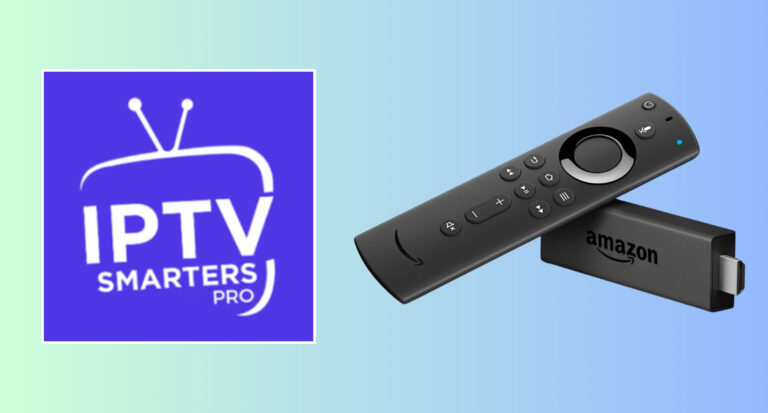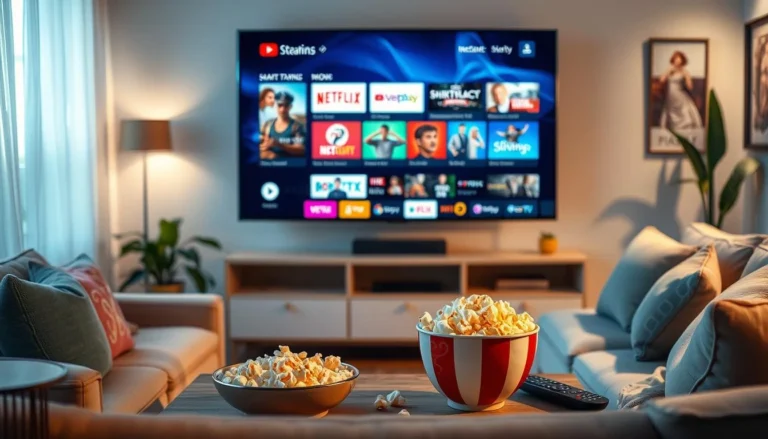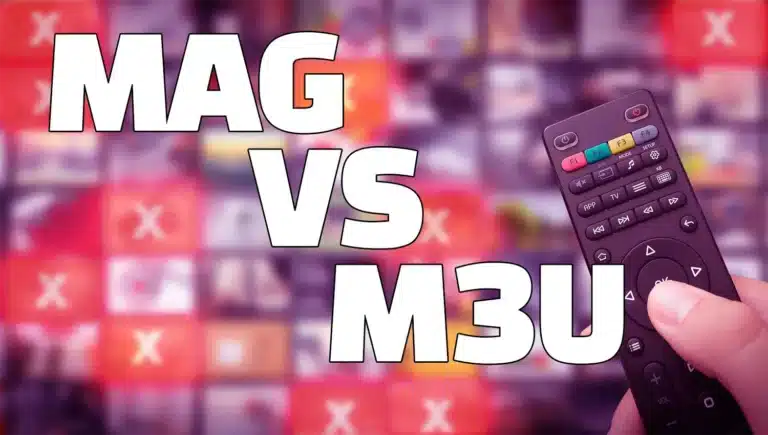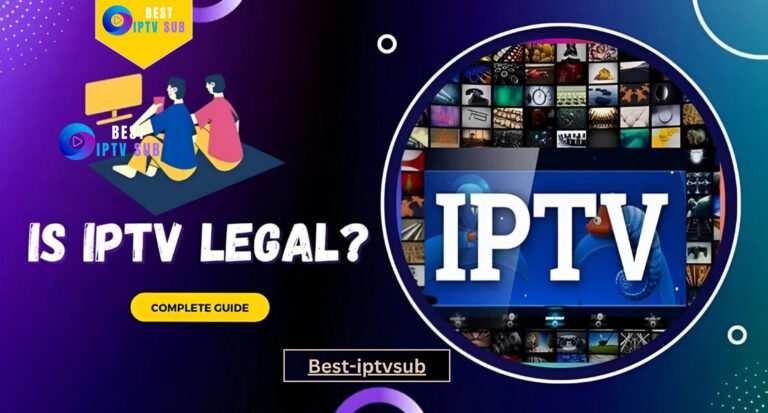IPTV Stream: A Comprehensive Guide to the Future of Media Consumption
IPTV Stream: A Comprehensive Guide to the Future of Media Consumption
1. Introduction
1.1 Definition of IPTV Stream
IPTV (Internet Protocol Television) stream refers to the delivery of television content over the internet, rather than through traditional terrestrial, satellite, or cable formats. IPTV allows users to stream live TV channels, on-demand videos, and other multimedia content directly to their devices.
1.2 Importance of IPTV Stream in Modern Media Consumption
The rise of IPTV stream services marks a significant shift in how we consume media. With the ability to access a vast range of content anytime, anywhere, IPTV has revolutionized the entertainment industry by offering unparalleled flexibility and personalization.
1.3 Overview of the Article
This article explores the intricacies of IPTV stream technology, its benefits, challenges, and future potential. We will also provide practical insights on setting up an IPTV stream, comparing it with other streaming services, and understanding the legal aspects of IPTV.
2. Understanding IPTV Technology
2.1 How IPTV Works
IPTV works by transmitting video content over IP networks, allowing for seamless delivery of live TV, video-on-demand, and interactive television. Unlike traditional broadcasting, IPTV streams data in small packets, enabling users to watch content in real time without the need for large files.
2.2 Types of IPTV Services
IPTV services can be categorized into three main types:
- Live Television: Streaming of real-time TV channels.
- Time-Shifted Media: Allows viewers to watch previously aired TV shows later.
- Video on Demand (VOD): Users can select and watch video content whenever they choose.
2.3 IPTV vs. Traditional Broadcasting
IPTV stream differs from traditional broadcasting in several ways. It offers more control over content, higher customization options, and the ability to watch content on multiple devices. Unlike traditional TV, IPTV is not bound by broadcast schedules, giving users the freedom to watch content at their convenience.
3. IPTV Stream Providers
3.1 Best-iptvsub
The IPTV market is populated by various providers, each offering unique features and content libraries. Some of the major IPTV stream providers include Sling TV, Hulu + Live TV, and YouTube TV. These platforms offer a mix of live TV, on-demand content, and DVR capabilities.
3.2 Streamgalaxy-iptv
When selecting an IPTV provider, consider factors such as content variety, streaming quality, device compatibility, and customer support. A good provider should offer a diverse range of channels, high-definition streaming, and user-friendly interfaces.
3.3 Abonnementiptvfrancee
Comparing IPTV providers involves looking at their channel lineup, pricing, and additional features. Abonnementiptvfrancee offers affordable packages with customizable channel options, while Hulu + Live TV combines live streaming with a vast on-demand library.
4. Setting Up an IPTV Stream
4.1 Required Equipment for IPTV
To set up an IPTV stream, you’ll need a stable internet connection, a compatible device (such as a smart TV, streaming box, or smartphone), and an IPTV subscription. Some providers may also require a specific app or software to access their content.
4.2 Steps to Install and Configure IPTV
Setting up IPTV typically involves downloading the provider’s app, entering your subscription details, and configuring the settings according to your preferences. Ensure that your internet speed meets the provider’s recommendations to avoid buffering issues.
4.3 Common Troubleshooting Tips
Common issues with IPTV streams include buffering, freezing, and poor video quality. To resolve these, check your internet connection, update your app or software, and try restarting your device. If problems persist, contact your provider’s customer support for assistance.
5. Benefits of IPTV Stream
5.1 Cost-Effectiveness
One of the significant advantages of IPTV stream services is their cost-effectiveness. Compared to traditional cable or satellite TV, IPTV often provides a more affordable option with a wider range of content. Users can choose packages that fit their budget and viewing preferences.
5.2 Access to a Wide Range of Content
IPTV offers access to a vast array of content from around the world. Whether you’re interested in local channels, international programming, or niche genres, IPTV streams cater to diverse tastes and preferences.
5.3 Flexibility and Convenience
IPTV stream services provide unparalleled flexibility, allowing users to watch their favorite shows and movies on-demand, at any time, and on any device. This level of convenience is particularly appealing to modern viewers who prefer personalized entertainment experiences.
6. Challenges of IPTV Stream
6.1 Legal Issues
The legality of IPTV streams can vary depending on the content being streamed and the provider. Some IPTV services operate in a legal gray area, offering pirated content that violates copyright laws. It’s essential to choose legitimate providers to avoid legal complications.
6.2 Technical Challenges
IPTV streams can be prone to technical issues such as buffering, lag, and streaming interruptions. These problems often arise from insufficient internet bandwidth or server overloads, affecting the viewing experience.
6.3 Quality of Service Concerns
While IPTV offers many benefits, the quality of service can be inconsistent. Factors such as internet speed, provider infrastructure, and network congestion can impact the reliability of IPTV streams, leading to potential frustrations for users.
7. The Future of IPTV Stream
7.1 Emerging Trends in IPTV
The future of IP TV stream technology is bright, with several emerging trends on the horizon. These include the integration of artificial intelligence for personalized content recommendations, the expansion of 4K and 8K streaming, and the growth of interactive TV features.
7.2 Potential Developments
As technology advances, IP TV streams are likely to see improvements in streaming quality, reduced latency, and enhanced user interfaces. Additionally, the integration of voice control and smart home devices will make IPTV more accessible and user-friendly.
7.3 How IPTV May Evolve with 5G
The rollout of 5G networks is expected to revolutionize IP TV stream services by providing faster, more reliable internet connections. This will enable seamless streaming of high-definition content, even in areas with previously poor internet coverage.
8. IPTV Stream for Businesses
8.1 Applications of IPTV in Corporate Settings
IP TV streams are increasingly being adopted in corporate environments for purposes such as employee training, internal communications, and digital signage. Companies can use IPTV to deliver customized content to employees or customers in real-time.
8.2 IPTV in Hospitality and Healthcare
The hospitality and healthcare industries are also embracing IPTV streams to enhance the customer experience. Hotels use IPTV to offer guests personalized entertainment options, while healthcare facilities provide patients with access to a wide range of TV channels and educational content.
8.3 Benefits of IPTV for Business Communication
IP TV streams offer businesses a powerful tool for communication, enabling them to broadcast live events, deliver training sessions, and share important announcements. The flexibility of IPTV allows companies to tailor their content to specific audiences and needs.
9. IPTV Stream and Internet Security
9.1 Risks Associated with IPTV
IP TV streams are not without security risks. Users may encounter malware, phishing attacks, or data breaches if they use unauthorized IPTV services. It’s crucial to choose reputable providers and use secure connections to protect personal information.
9.2 Best Practices for Secure IPTV Usage
To ensure secure IPTV usage, avoid sharing your login credentials, use strong passwords, and regularly update your streaming devices and apps. Additionally, consider using a virtual private network (VPN) to encrypt your internet connection and protect your privacy.
9.3 Protecting Your Network While Streaming
When streaming IPTV, it’s essential to protect your network from potential threats. This can be done by using a secure router, enabling firewalls, and keeping your software up to date. These precautions help safeguard your devices and data from cyber threats.
10. Comparing IPTV Stream with Other Streaming Services
10.1 Best-iptvsub vs. OTT Services
Over-the-top (OTT) services like Netflix and Amazon Prime differ from IPTV in that they deliver content over the open internet rather than through a managed network. While OTT services offer a vast library of on-demand content, IPTV provides live TV and a more traditional viewing experience.
10.2 Best-iptvsub vs. Video-on-Demand
Video-on-demand (VOD) is a feature of both IPTV and OTT services, allowing users to watch content whenever they want. However, Best-iptvsub often includes VOD as part of a broader service that also offers live TV channels and time-shifted media.
10.3 Best-iptvsub vs. Satellite TV
Satellite TV relies on satellite signals to deliver content, whereas IPTV uses internet protocols. Best-iptvsub offer more interactive features, such as pause and rewind, and are generally more adaptable to different devices. However, satellite TV may offer more stable service in areas with limited internet access.
11. IPTV Stream: Legal Aspects
11.1 Understanding IPTV Regulations
The legality of IP TV stream services varies by region and depends on how the content is obtained and distributed. Some countries have strict regulations that govern the operation of IPTV services, while others may have more lenient laws.
11.2 Legal IPTV Providers vs. Illegal Streams
It’s essential to distinguish between legal IPTV providers, who obtain content through proper licensing, and illegal streams that distribute pirated content. Using illegal IPTV streams can result in legal consequences and pose significant risks to your online security.
11.3 How to Ensure Compliance with IPTV Laws
To ensure compliance with IPTV laws, choose a provider that operates within legal frameworks and adheres to copyright regulations. Avoid services that offer suspiciously low prices or access to premium channels without proper licensing.
12. How to Choose the Best IPTV Stream
12.1 Factors to Consider
When choosing an IP TV stream provider, consider factors such as content availability, streaming quality, customer support, and device compatibility. It’s also important to assess the provider’s reputation and user reviews.
12.2 Evaluating IPTV Stream Providers
Evaluating IP TV stream providers involves comparing their service packages, pricing, and customer reviews. Look for providers that offer a trial period, so you can test the service before committing to a subscription.
12.3 Tips for a Smooth Streaming Experience
For the best IPTV streaming experience, ensure that you have a fast and stable internet connection, use compatible devices, and regularly update your streaming apps. Additionally, consider investing in a high-quality router to improve your network’s performance.
13. IPTV Stream in Different Regions
13.1 IPTV Usage in North America
In North America, IP TV stream services are gaining popularity due to the increasing demand for cord-cutting options. Services like Sling TV and Hulu + Live TV have become popular alternatives to traditional cable, offering a wide range of channels and on-demand content.
13.2 IPTV in Europe and Asia
Europe and Asia are also experiencing growth in IPTV usage, with countries like the UK, France, and South Korea leading the way. In these regions, IPTV services often include local content, catering to the diverse preferences of their audiences.
13.3 Regional Differences in IPTV Content
IPTV content varies significantly by region, with providers offering different channels and programming based on local demand. For instance, European IPTV services may include a mix of international and regional channels, while Asian providers might focus more on local content.
14. User Experience and Reviews of IPTV Stream
14.1 What Users Are Saying About IPTV
User reviews of IP TV stream services are generally positive, with many praising the flexibility, content variety, and cost-effectiveness. However, some users report issues with streaming quality and customer support, highlighting the importance of choosing a reliable provider.
14.2 Common Complaints and Issues
Common complaints about IP TV streams include buffering, poor video quality, and limited customer support. These issues are often related to the provider’s infrastructure and the user’s internet connection, underscoring the need for thorough research before subscribing.
14.3 Best Practices for Enhancing User Experience
To enhance your IPTV streaming experience, ensure you have a stable internet connection, choose a reputable provider, and regularly update your streaming apps. Additionally, consider using a wired connection instead of Wi-Fi for more reliable streaming.
15. FAQs on IPTV Stream
15.1 What is IPTV Stream?
An IPTV stream refers to the delivery of television content over internet protocols, allowing users to watch live TV, on-demand videos, and other multimedia content on various devices.
15.2 Is IPTV Legal?
IPTV is legal as long as the provider has obtained the necessary licenses to distribute the content. However, some IPTV services operate illegally, offering pirated content without proper licensing.
15.3 How to Improve IPTV Stream Quality?
To improve IPTV stream quality, ensure that you have a fast and stable internet connection, use compatible devices, and regularly update your streaming apps. Additionally, consider using a wired connection or upgrading your internet plan for better performance.












